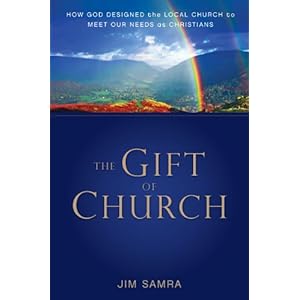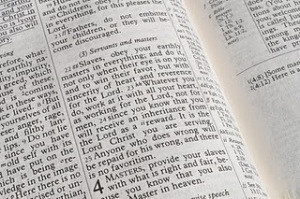I am a die-hard Auburn Tigers football fan. I have been known (ahem) to keep a whiteboard next to the couch on Saturdays with game times and channels so I could more effectively keep track of how every other game being played affected my Tigers. I yell and jump around, do victory dances, and have been known to to leave the room after an exceptionally bad play. I’m a lunatic … in fact, some might say I’m a fanatic. Okay, honestly, some have said – including my husband who, when preaching a sermon on worship, used my football-insanity as an example of what worship looks like. See, I’m changed on game days … watching Auburn play affects my countenance and it affects what I do and how I act when the game is over.
In the church, we need to understand the importance of worship. And recognize what worship is and is not. Worship isn’t “choruses” or hymns, pipe organs or electric guitars, standing or sitting, hands up or down … worship is far better defined as “Worth-Ship.” And, as my husband likes to remind our church, we ALL give worth-ship to something. In fact, we were created to do so. The issue isn’t, “How do we worship?” The real question is, “What or who do we worship?”
Isaiah 1 reveals to us what God intends our worship of Him to be. God had clearly told the Israelites what He desired from them in terms of worship. He had outlined a full sacrificial system designed not only to meet their need of forgiveness but also to meet their need for worship. But, it was not their sacrifices He wanted … it was their hearts.
“The multitude of your sacrifices – what are they to me?” says the Lord. “I have more than enough of burnt offerings, of rams and the fat of fattened animals. I have no pleasure in the blood of bulls and lambs and goats.” v. 11 NIV
They were doing what they had been commanded, what they had been instructed. God continues by saying, “Stop bringing meaningless offerings! … I cannot bear your evil assemblies” (v. 13). He tells them their festivals and feasts “have become a burden” and speaks of being weary of them (v.14).
In verse 15 we find this eye-opening statement:
“When you spread out your hands in prayer, I will hide my eyes from you; even if you offer prayers, I will not listen.”
Can you imagine God saying to us, “Enough! Enough of your songs and dramas, enough of your creeds and rituals, enough of the pretense!”
That’s what God was saying to the Israelites. They were in day-to-day life no different from any other people and yet they continued to do all those “things” they had been commanded. And God said (and continues to say), “Enough!”
Then He gives us these beautiful words of hope:
“Stop doing what is wrong and learn to do right! Seek justice, encourage the oppressed. Defend the cause of the fatherless, plead the case of the widow … Though your sins are like scarlet, they shall be white as snow; though they are red like crimson, they shall be as wool.” (v.16 – 19)
Worshiping God isn’t about what we do in church … it’s about what we do when we leave. It doesn’t matter what songs are sung and what (if any!) instruments are a part. Worship isn’t music style or preference and when we limit it to that, we miss the great joy of experiencing worship in spirit and in truth (John 4:23-24). Worship, true worship, will always change us!
Just like the result of an Auburn football game affects what I do after the final whistle is blown, so worship – if it is real – will affect what we do after we have experienced it.
Have you experienced true worship? How has that changed you?
Image: Jordan-Hare Stadium by Scott Fillmer

 “When is it okay to leave one church to go to another?” Although there are not any passages in the Bible that specifically say “You should change churches when…” there are plenty of truth principles in Scripture to guide us in this matter. So that’s where we’ll start to find some answers!
“When is it okay to leave one church to go to another?” Although there are not any passages in the Bible that specifically say “You should change churches when…” there are plenty of truth principles in Scripture to guide us in this matter. So that’s where we’ll start to find some answers!











